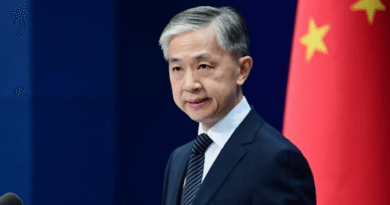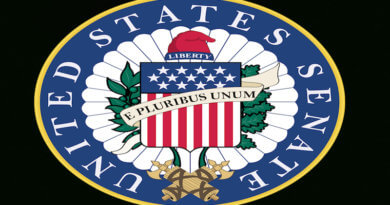Hong Kong shuts government as mass protests against extradition law continue

DHARAMSALA, 13 June: The authorities in Hong Kong have shut some government offices as they press on with the controversial extradition bill in spite of the widespread opposition from the people as they fear it could encroach the city’s autonomy and judicial independence, and enable Chinese authorities to use to crack down on pro-democracy activists and others critical of Beijing.
Hong Kong’s Central Government Offices and Admiralty MTR station will remain closed on Thursday as the area remains on police lockdown, while the authorities deemed the protest a riot.
Though the protesters have demanded Hong Kong Chief Executive Carrie Lam’s resignation as they said she speaks the language of Beijing, not that of Hongkongers, she has refused to withdraw the extradition bill, saying it is needed to plug loopholes to prevent the city from becoming a haven for mainland fugitives, the CNN reported.
As Hong Kong Chief Executive Carrie Lam stands firm in her support for the highly controversial extradition bill, the police have used rubber bullets, bean bags and tear gas to to forcibly disperse the tens of thousands of protesters who have occupied the city’s main thoroughfare near the government headquarters, as well as the roads around it, on Wednesday.
Human Rights Watch has accused the police of using “excessive force” against protesters which resulted in injuring as many as seventy-two people aged between 15 and 66, including two men who were in critical condition.
The pro-Beijing group within the legislature has a majority of 43 of the total 70 seats but the city’s legislative council which was due to hold the second reading of the controversial bill on Wednesday morning failed to do so because of the road blockage around the Legislative Council building by the protesters. It now stands postponed.
Thousands of protesters who have been forced out have now moved west to Hong Kong’s Central district, the city’s business and retail heart as they vow to keep protesting.
The bill met with widespread opposition from the Hongkongers, international rights groups and as well as the city’s traditionally conservative business community as they raised concern over Beijing’s poor human rights record and opaque legal system while the last British governor of Hong Kong sees it as “an assault on Hong Kong’s values, stability and security.”
The proposed law would allow Hong Kong to extradite fugitives to territories where it doesn’t have formal extradition deals, including mainland China, Taiwan and Macau.
The controversial bill was the subject of the largest demonstration the city has witnessed since it was handed back to China in 1997 by the British.
The Chief Executive of Hong Kong announced the proposal to amend the city’s extradition laws earlier this year in February so that it would allow criminal suspects from any region—including mainland China—to seek extradition without Hong Kong’s unicameral legislature, the Legislative Council, signing off on the requests. The city’s head of government, the chief executive, would be able to approve the extradition requests directly.
The protest now entering its second week saw more than 1 million protesters took to the streets of Hong Kong Sunday. The first protest against the bill was organised by Civil Human Rights Front (CHRF) on 31 March.
Hong Kong, a former British colony returned to Chinese rule in 1997 under a “one country, two systems” formula, that promised a high degree of autonomy and universal suffrage as an “ultimate aim”.





